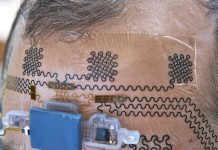
In a seemingly contradictory phenomenon, sleep deprivation can sometimes lead to mood improvements in individuals with depressive disorders, a study led by the Perelman School of Medicine, University of Pennsylvania, Philadelphia, has found.
Understanding the Phenomenon
In a paper published in PNAS titled “Enhanced amygdala–cingulate connectivity associates with better mood in both healthy and depressive individuals after sleep deprivation,” researchers investigated why some people might experience a mood boost after a sleepless night, an otherwise harmful occurrence from a public health perspective.
The team found that one night of total sleep deprivation increased connectivity between the amygdala and the anterior cingulate cortex, two key brain regions.
This increased connectivity correlated with improved mood in some healthy and depressed individuals.
Study Methodology
Researchers conducted sleep deprivation experiments on both healthy individuals (38 participants) and patients with major depressive disorder (30 participants).
An additional 16 controls were allowed uninterrupted sleep. The experiments were carried out over five consecutive days in the Clinical Translational Research Center laboratory at the University of Pennsylvania Hospital.
Participants underwent three resting-state fMRI scanning sessions over the five days. The first scan was taken as a baseline after a normal night’s sleep.
Participants in the sleep deprivation groups had their second scanning session after a night without sleep. Participants then had two nights of restful sleep and a final scanning session on day five.
Key Findings
As anticipated, most participants experienced a deterioration in mood after a night of no sleep.
However, 13 out of 30 participants with major depressive disorder experienced an improvement in mood, while the remaining participants experienced either a worsening of mood or no change after one night of sleep deprivation.
Enhanced connectivity between the amygdala and the anterior cingulate cortex was significantly more in patients with improved mood.
The amygdala plays a vital role in the fight or flight response, processing threatening stimuli and signaling the brain.
On the other hand, the anterior cingulate cortex is involved with emotional regulation and the control of emotional states.
Potential Explanations and Implications
The research team posits that differences in the impact of total sleep deprivation could potentially be tied to the duration of rapid eye movement (REM) sleep.
Abnormalities in REM sleep have previously been linked with major depression, and a lack of REM sleep might improve top-down control of the amygdala, leading to an antidepressant effect.
The increased connectivity between the amygdala and the anterior cingulate cortex could, therefore, be a potential target for antidepressant interventions.
If you care about sleep, please read studies about the science on 3 traditional bedtime remedies, and this sleep supplement may help prevent memory loss and cognitive decline.
For more information about sleep, please see recent studies about how to sleep to prevent Alzheimer’s disease, and results showing scientists find silent sleep danger for smokers.
The study was published in PNAS. Follow us on Twitter for more articles about this topic.
Copyright © 2023 Knowridge Science Report. All rights reserved.



